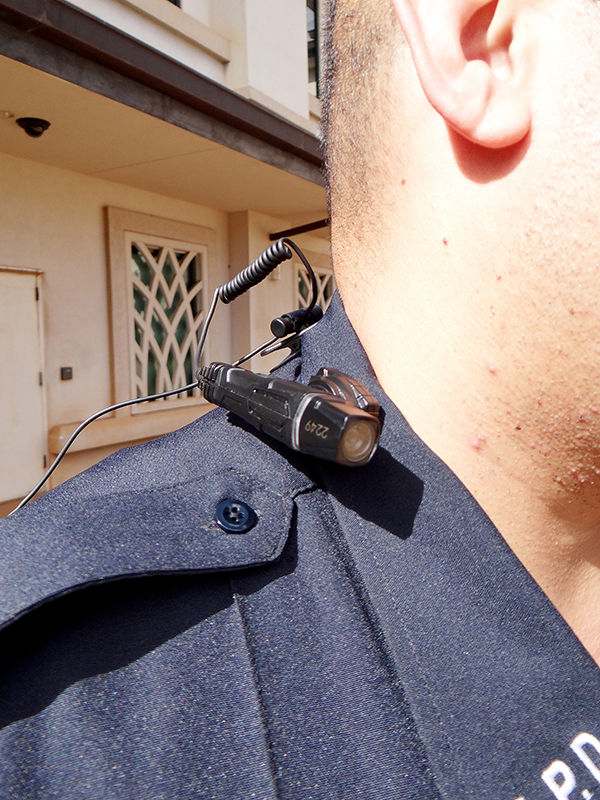LIHUE — Police body cameras are getting support, but there are privacy concerns and labor contract issues to deal with before they become a reality. The Kauai Police Department briefed the Kauai County Council Wednesday on the department’s $134,000 request to
LIHUE — Police body cameras are getting support, but there are privacy concerns and labor contract issues to deal with before they become a reality.
The Kauai Police Department briefed the Kauai County Council Wednesday on the department’s $134,000 request to purchase 142 police body cameras, and the committee said it was in favor of equipping officers with electronic surveillance.
The department would pay for the equipment out of KPD’s asset forfeiture fund.
“We are hopeful that the police have discretion to move forward on this,” Council Public Safety Committee Chair Gary Hooser said.
Officers attested to the benefits of cameras.
KPD officers Tyrus Contrades and Stacy Perreira presented the results of a pilot project with Taser that ran a month in the fall. Five officers on three watches and the same job duties were involved and wore AXON flex body camera whenever they encountered members of the public in their duties.
The benefits are improved officer performance and professionalism, Perreira said. People act differently on camera in public, and the goal is to revitalize public trust and confidence with an unbiased, unedited recreation of events from the officer’s point of view.
“It will decrease citizen complaints and enhance the protection of false claims and unnecessary use of force,” she said.
State of Hawaii Organization of Police Officers general counsel Barbara Wong said the concerns are that any agreement or change regarding body camera use at KPD will affect other island departments. They are subject to the same labor and bargaining agreements.
“What we do here will impact everyone else,” Wong said. “We do see a lot of positives.”
The problem is that departments won’t have the staff to handle a deluge of public record requests for the videos in a timely manner. She said this could create an air of suspicion when it’s a matter of resources. But the privacy issues, balanced with the right of a citizen to retrieve video content, can be difficult because departments might not have the resources to redact sensitive information on the videos.
She added that SHOPO officials want to determine how the body cam policies will work with the four main counties. She referred to a Department of Justice study on police body cams that listed among its recommendations to “go slowly.”
SHOPO Kauai Chapter Chair Jesse Guirao said the body cams appear to be a good tool, but certain issues need to be addressed at SHOPO’s Jan. 21 meeting.
“This is a working condition under our contract that is to be negotiated,” Guirao said.
Kauai’s request includes 14 uploading docks and a data cloud service provider. They would budget the $66,000 to maintain a web-based video management system.
Councilwoman JoAnn Yukimura said, with regard to privacy rights, there needs to be clear policy on how police are to inform citizens they are being recorded and when they may refuse.
Perreira said the recording in public is permissible and in a private setting where a crime is suspected to be taking place. Police must inform victims that they are being recorded and turn the cameras off if they do not agree, she added.
Yukimura said she was optimistic the first year costs of the program might be offset by the money saved to the county in fewer complaints and other related cost reductions.


